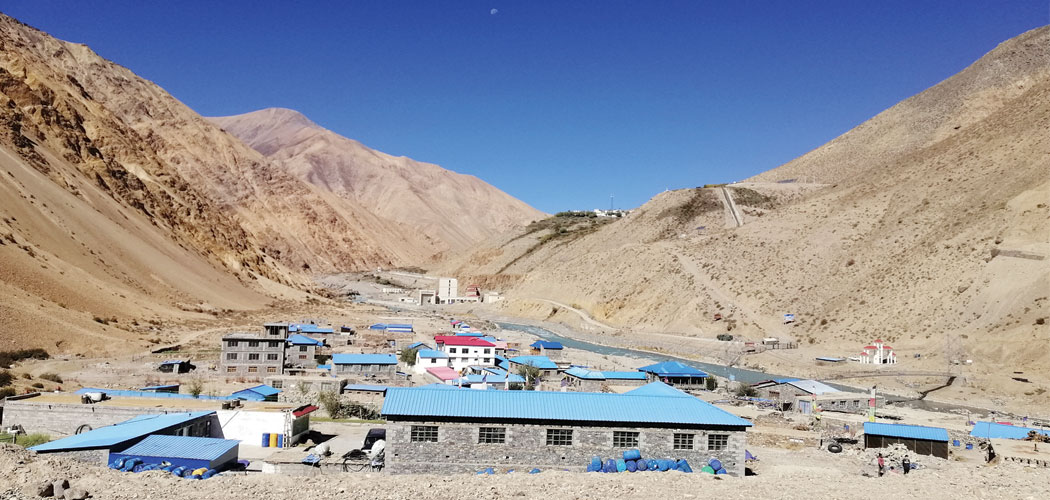- Thursday, 18 December 2025
Consumers in remote districts hard hit by skyrocketing inflation
Karnali, Oct 26 :The rising market inflation has hit hard the consumers in the mountainous districts of Karnali province. Price of essential commodities of daily use has skyrocketed after the roads in the district had been disrupted by flood and landslide triggered by incessant rains during the first week of this month.
Traffic on the Karnali Highway
resumed last Tuesday, 20 days after being disrupted. Although the highway has
been opened for traffic, not all vehicles can travel easily due to the poor and
risky condition of the road at several places along the highway. As a result,
the supply of essential consumer goods has still not become smooth.
The traders have retained the price
of commodities which they had arbitrarily increased citing the disruption of
the highway. The consumers have been hit hard by the exorbitant price
hike.
Wheat flour which cost Rs 70 per
kilogramme before the disruption of the highway now costs Rs 160 per kilogramme
and it is in short supply.
"The market price of essential
commodities has shot up beyond the reach of the ordinary consumers.
The price of cooking gas has reached Rs 3,000 per cylinder while that of cooking oil has hit Rs. 160 per litre packet," rued Samjhana Mahat of Chandannath Municipality-7, Jumla. She said on top of the high inflation, there is shortage of commodities in the market.
According to her, the price of
essentials has increased by almost three-folds. The marigold flower garland
which cost Rs 50 before has now reached Rs. 150 per unit. Mutton price which
was Rs. 1000 per kilo has reached Rs 1,300 per kilo and one cannot get chicken
in the market.
Jaya Shankar Dhital, a consumer,
charged the traders of creating an artificial shortage in the market to
increase the price in the pretext of highway disruption.
Similarly, the local transport
operators have increased the transport fare by 20 to 25 percent citing shortage
of fuel. The price of vegetables has also shot up two times.
The consumers in Humla, Dolpa,
Mugu, Jumla and Kalikot districts of the Karnali province have been adversely
affected by the high inflation. (RSS)














